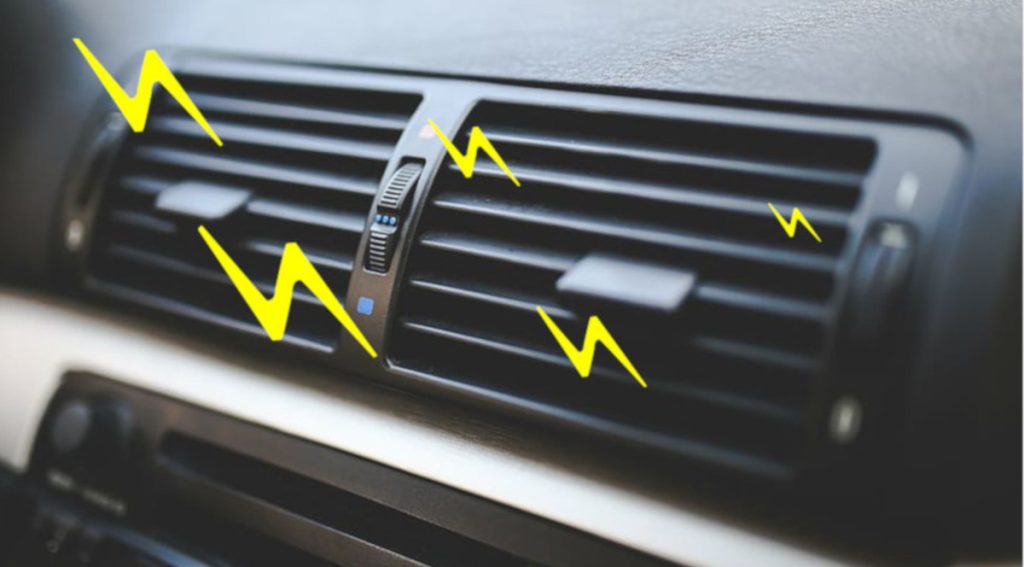The Science Behind the Vinegar Smell in Your Car AC System
If you’ve ever noticed a strange vinegar-like smell coming from your car’s air conditioning (AC) system, you’re not alone. This unpleasant odor can be quite bothersome and can make your driving experience less enjoyable. In this article, we will explore the causes of the vinegar smell in your car AC system and provide you with solutions to eliminate it.
The vinegar smell in your car AC system is often a sign of mold or mildew growth. When moisture gets trapped in the AC system, it creates the perfect environment for these microorganisms to thrive. As they grow and multiply, they release volatile organic compounds (VOCs) that give off a distinct vinegar-like odor. Not only is this smell unpleasant, but it can also be a health hazard, especially for those with respiratory issues.
In order to eliminate the vinegar smell, it is important to understand the different components of your car AC system and how they work together. By identifying the source of the smell, you can take appropriate measures to get rid of it and prevent it from returning.
Understanding the Components of Your Car AC System
Your car’s AC system consists of several components that work together to cool and dehumidify the air inside your vehicle. These components include the compressor, condenser, evaporator, expansion valve, and refrigerant. The compressor pressurizes the refrigerant gas, which then flows through the condenser where it releases heat and becomes a high-pressure liquid. The liquid refrigerant then passes through the expansion valve, which reduces its pressure and temperature. As it enters the evaporator, it absorbs heat from the air inside your car, cooling it down. The cooled air is then blown into the cabin by the blower motor.
Understanding these components is crucial for identifying the source of the vinegar smell in your car AC system. It could be caused by mold or mildew growth in any of these components, or in the ductwork that distributes the air throughout your vehicle. By knowing how the system works, you can narrow down the possible sources of the smell and take appropriate action to eliminate it.
Causes of the Vinegar Smell in Your Car AC System

The vinegar smell in your car AC system can have several causes, but the most common one is mold or mildew growth. When moisture gets trapped in the system, either due to a clogged drain tube or excessive humidity, it creates the perfect conditions for these microorganisms to thrive. As they grow and multiply, they release VOCs that give off the vinegar-like odor.
Another possible cause of the vinegar smell is a dirty or clogged cabin air filter. This filter is responsible for trapping dust, pollen, and other airborne particles before they enter your car’s cabin. Over time, if the filter becomes dirty or clogged, it can become a breeding ground for bacteria and fungi, which can contribute to the vinegar smell.
Additionally, if there is a refrigerant leak in your car’s AC system, it can create a musty odor that resembles vinegar. The refrigerant itself does not have a smell, but when it comes into contact with moisture or oil in the system, it can produce an unpleasant odor.
The Role of Bacteria and Fungi in the Vinegar Smell
Bacteria and fungi play a significant role in the vinegar smell in your car AC system. When moisture gets trapped in the system, it creates a damp environment that is ideal for these microorganisms to grow and thrive. As they multiply, they release VOCs that give off the distinct vinegar-like odor.
Bacteria and fungi can grow on various surfaces within your car’s AC system, including the evaporator coil, condensate drain pan, and ductwork. The evaporator coil, in particular, is a common breeding ground for these microorganisms. As the air passes over the coil, moisture condenses on its surface, providing the perfect conditions for bacteria and fungi to grow.
In addition to causing the vinegar smell, bacteria and fungi can also pose health risks. They can release allergens and irritants into the air, which can trigger respiratory symptoms in sensitive individuals. It is important to eliminate these microorganisms from your car’s AC system to ensure a healthy and pleasant driving experience.
How Humidity Affects Your Car AC System
Humidity plays a significant role in the development of the vinegar smell in your car AC system. High humidity levels create the perfect conditions for mold and mildew growth, as these microorganisms thrive in damp environments.
When the air inside your car is humid, moisture can condense on the evaporator coil of your AC system. This moisture provides a breeding ground for bacteria and fungi, which can lead to the vinegar smell. Additionally, high humidity levels can make the smell worse, as it allows these microorganisms to multiply more rapidly.
To prevent excessive humidity in your car’s AC system, it is important to keep your windows closed when using the AC and use recirculation mode whenever possible. This will help maintain a lower humidity level inside your vehicle and reduce the risk of mold and mildew growth.
The Importance of Regular Maintenance of Your Car AC System
Regular maintenance of your car’s AC system is crucial for preventing the vinegar smell from occurring. By keeping your system clean and well-maintained, you can minimize the risk of mold and mildew growth and ensure that it functions properly.
One important maintenance task is to regularly clean or replace your cabin air filter. This filter traps dust, pollen, and other airborne particles before they enter your car’s cabin. Over time, it can become dirty or clogged, providing a breeding ground for bacteria and fungi. By cleaning or replacing the filter regularly, you can prevent these microorganisms from multiplying and causing the vinegar smell.
Another important maintenance task is to clean the evaporator coil and drain pan. These components can become dirty or clogged with dust, debris, and mold or mildew growth. By cleaning them regularly, you can remove any accumulated dirt and prevent the growth of microorganisms.
Additionally, it is important to have your car’s AC system inspected and serviced by a professional on a regular basis. They can check for any leaks, clean the system thoroughly, and ensure that all components are functioning properly. Regular maintenance will not only prevent the vinegar smell but also extend the lifespan of your AC system.
Common DIY Solutions for Eliminating the Vinegar Smell
If you notice a vinegar smell in your car’s AC system, there are several DIY solutions that you can try to eliminate it. These solutions are relatively simple and can be done with common household items.
One popular DIY solution is to use vinegar. Vinegar is known for its antimicrobial properties and can help kill bacteria and fungi that cause the vinegar smell. To use vinegar, mix equal parts of white vinegar and water in a spray bottle. Spray this mixture onto the evaporator coil, drain pan, and ductwork of your AC system. Allow it to sit for a few minutes, then wipe it off with a clean cloth. This will help kill any microorganisms and remove the vinegar smell.
Another DIY solution is to use baking soda. Baking soda is a natural deodorizer and can help absorb unpleasant odors in your car’s AC system. To use baking soda, sprinkle it onto the carpeted areas of your car’s cabin and let it sit overnight. The next day, vacuum up the baking soda to remove any odors.
You can also try using an ozone generator to eliminate the vinegar smell. Ozone is a powerful oxidizer that can kill bacteria and fungi and neutralize unpleasant odors. However, it is important to use ozone generators with caution, as high levels of ozone can be harmful to your health. Follow the manufacturer’s instructions carefully and ensure that your car is well-ventilated during the ozone treatment.
Professional Solutions for Eliminating the Vinegar Smell
While DIY solutions can be effective in eliminating the vinegar smell in your car’s AC system, sometimes professional help is needed. If the smell persists despite your best efforts, it may be time to seek assistance from a professional.
One professional solution is to have your car’s AC system deep cleaned. This involves removing and cleaning the evaporator coil, drain pan, and ductwork of your AC system. A professional technician will use specialized cleaning agents and equipment to thoroughly clean these components and remove any mold or mildew growth. This will not only eliminate the vinegar smell but also improve the overall air quality in your car.
In some cases, it may be necessary to replace certain parts of your car’s AC system to eliminate the vinegar smell. For example, if there is a refrigerant leak, the affected component will need to be replaced. A professional technician can diagnose the source of the leak and replace the necessary parts to ensure that your AC system functions properly.
Preventing the Vinegar Smell from Returning in Your Car AC System

Once you have eliminated the vinegar smell from your car’s AC system, it is important to take steps to prevent it from returning. Regular maintenance and proper care of your AC system are key to preventing the growth of bacteria and fungi that cause the smell.
One important step is to use a dehumidifier in your car. A dehumidifier will help remove excess moisture from the air, reducing the risk of mold and mildew growth. You can purchase a portable dehumidifier that plugs into your car’s cigarette lighter or use moisture-absorbing products such as silica gel or activated charcoal.
Another important step is to change your cabin air filter regularly. This filter traps dust, pollen, and other airborne particles before they enter your car’s cabin. By replacing it every few months or as recommended by the manufacturer, you can prevent the buildup of dirt and the growth of microorganisms.
Regularly cleaning the interior of your car can also help prevent the vinegar smell from returning. Vacuuming the carpets and upholstery, wiping down surfaces with a mild detergent, and keeping your car’s cabin clean and dry will minimize the risk of mold and mildew growth.
Conclusion: Keeping Your Car AC System Fresh and Clean
The vinegar smell in your car’s AC system can be quite unpleasant, but with the right knowledge and actions, you can eliminate it and keep your AC system fresh and clean. By understanding the components of your AC system, identifying the causes of the smell, and taking appropriate measures to eliminate it, you can ensure a pleasant driving experience. Regular maintenance, DIY solutions, and professional assistance when needed are all important in keeping your car’s AC system in good condition. So take action today to eliminate the vinegar smell and enjoy fresh, clean air in your car.
